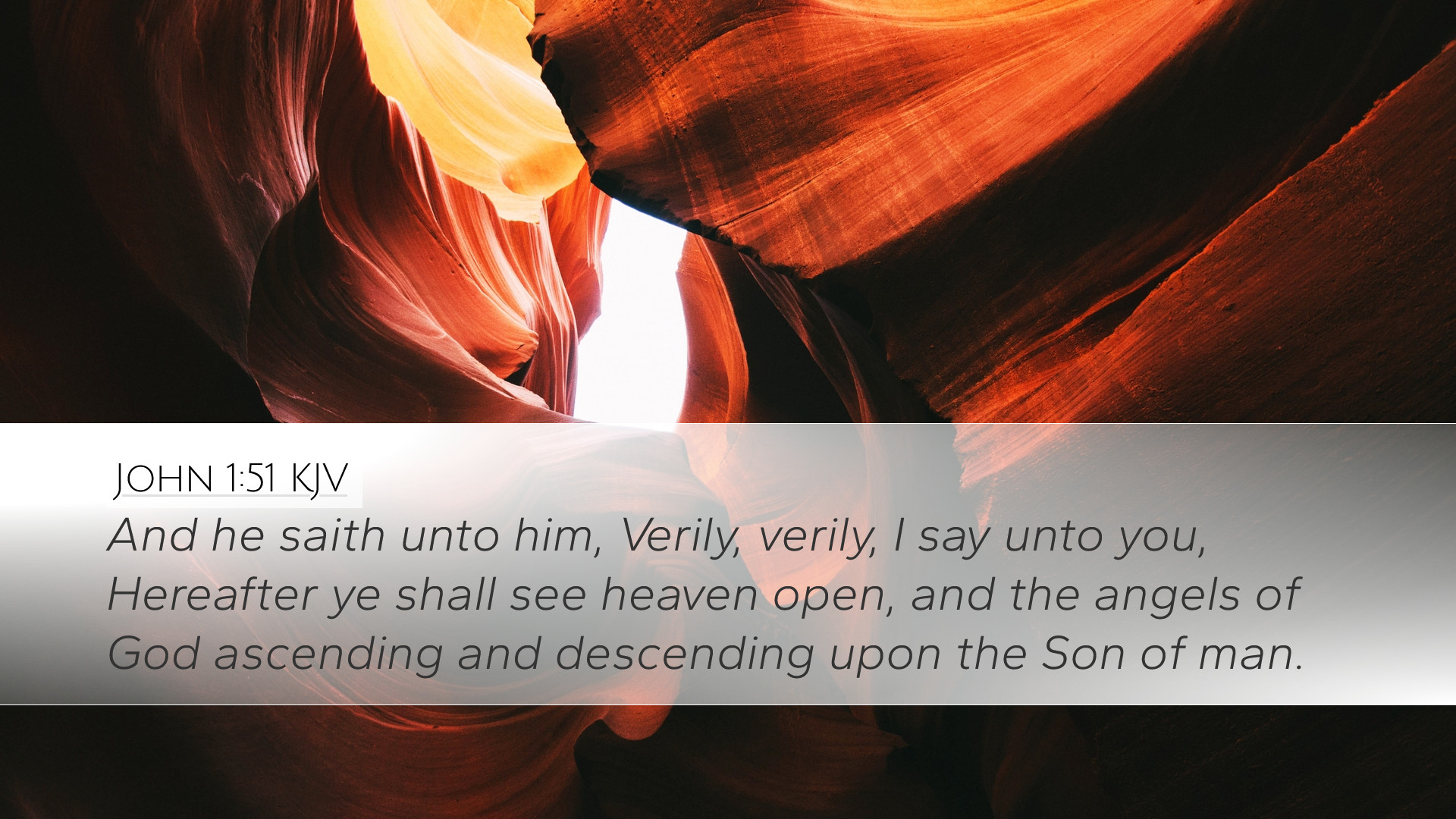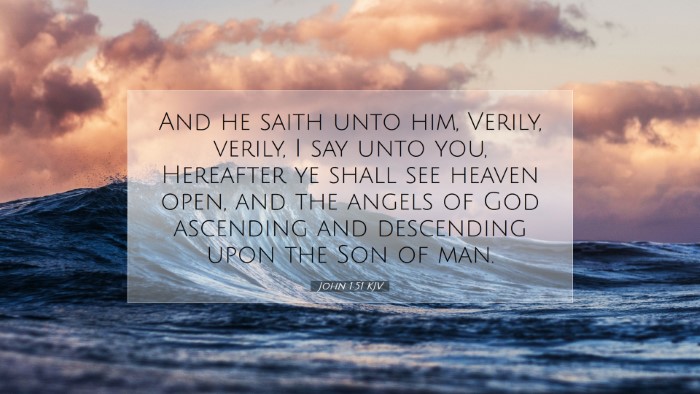Commentary on John 1:51
Verse Text: "And he saith unto him, Verily, verily, I say unto you, Hereafter ye shall see heaven open, and the angels of God ascending and descending upon the Son of man."
Introduction
This pivotal verse in the Gospel of John encapsulates profound theological truths revealed in the dialogue between Jesus and Nathanael. Scholars, theologians, and students alike have found rich meanings in the imagery of angels ascending and descending, highlighting Christ's role as the mediator between heaven and earth.
Exegesis and Analysis
Literal Meaning
The term "Verily, verily" suggests the certainty of what follows. Jesus emphasizes that the statements He is about to make are of absolute truth. The imagery of heaven being opened denotes divine revelation and access to God’s kingdom.
Spiritual Significance
The angels' movement signifies the ongoing relationship between God and humanity, with Christ as the bridge in this communication. This sets the stage for understanding Jesus as not only the messenger but also as the central figure in God’s plan for salvation.
Historical Context
Referencing Jacob's dream at Bethel (Genesis 28:12), where he saw a ladder reaching to heaven, Jesus presents Himself as the fulfillment of that revelation. In this light, He is the "ladder"; those who come to Him are granted access to the divine.
Matthew Henry's Perspective
Henry points out that the mention of "heaven open" signifies the removal of barriers between God and man that sin has placed. He emphasizes the importance of Jesus as the mediator who enables believers to engage directly with God.
Albert Barnes' Insights
Barnes elaborates on the imagery, interpreting it as indicative of Christ's divine authority. He asserts that the angels serve as ministering spirits to the followers of Jesus, illustrating the protective and guiding presence of God in the life of believers.
Adam Clarke's Contributions
Clarke emphasizes the role of Christ in establishing the new covenant. He explains that the angels’ ascent and descent upon the Son of Man symbolize the constant interaction between heaven and earth, reinforcing the notion that all blessings flow through Christ.
Theological Implications
- Christ as Mediator: The verse underscores the essential Christian belief of Jesus' mediation between humanity and God, a theme that is prevalent throughout the New Testament.
- Access to Heaven: The "open heaven" suggests that through Christ, believers can attain spiritual insights and direct communication with God, contrasting with the old covenant where access was limited.
- Angelology: This verse provides insight into the role of angels in the spiritual realm, highlighting their service to humanity and their connection to the Messiah.
Practical Applications
The teachings of John 1:51 are applicable today as they were in the first century. The assurance of direct access to God through Christ encourages a life of prayer, worship, and reliance on His guidance.
Encouragement to Believers
This verse serves as a source of comfort and encouragement to Christians. It reassures that believers are never alone; the angels are actively involved in God’s providential care.
Hope for the Unsaved
For those questioning their relationship with God, John 1:51 offers an invitation to come to Christ, through whom they can experience divine connection and eternal life.
Conclusion
In conclusion, John 1:51 is a profound declaration of Jesus’ identity and His work. This scripture affirms the interconnectedness of heaven and earth through Christ, inspiring both awe and reverence for the Son of Man. Whether one is a pastor, scholar, or student, the insights gained from this verse promote a deeper faith and understanding of the divine narrative revealed in Scripture.


